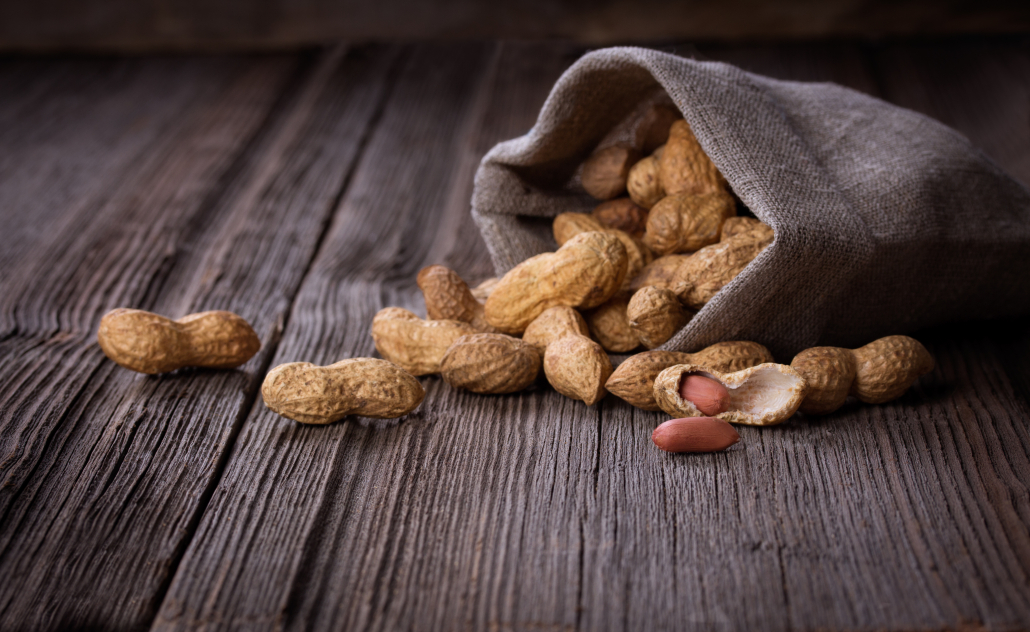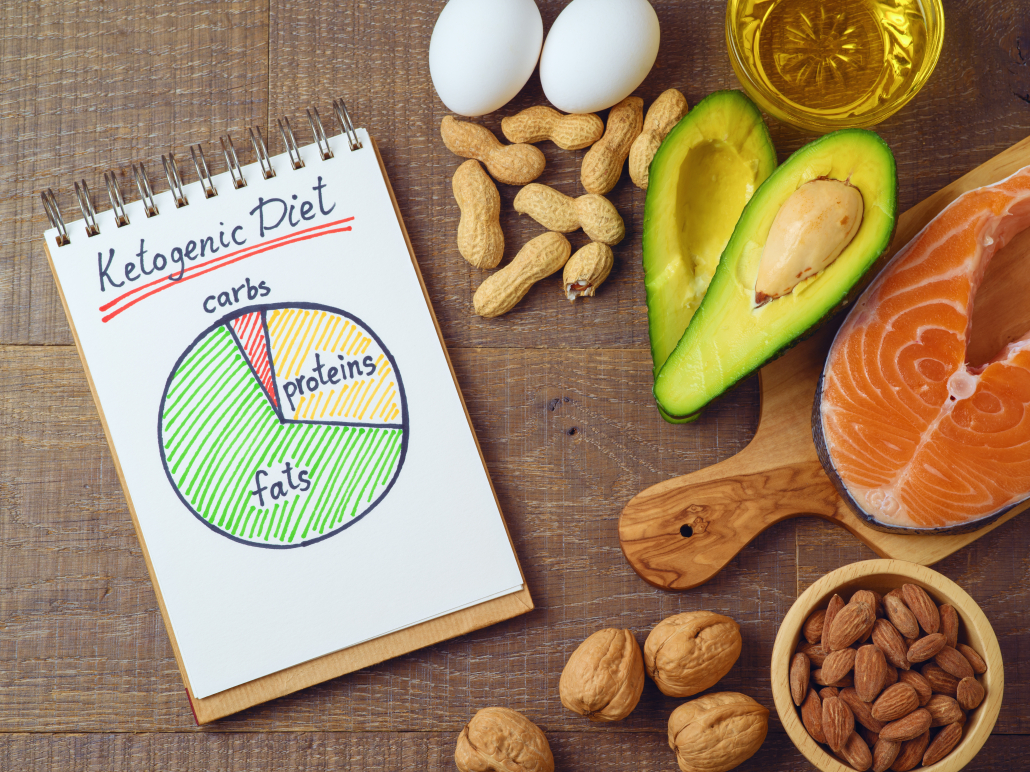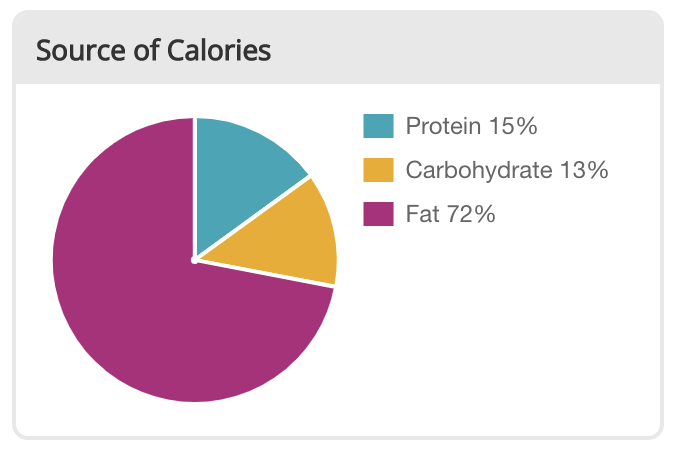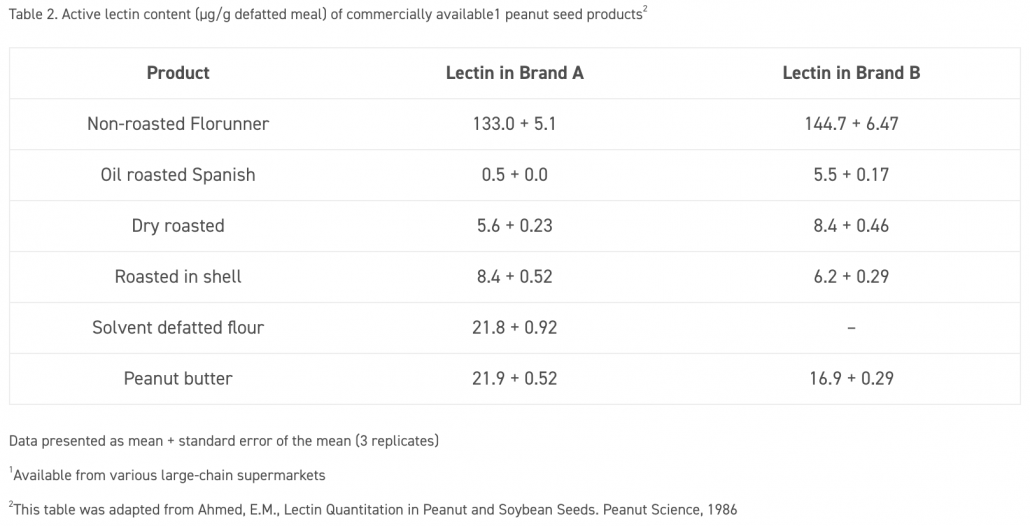We include products in articles we think are useful for our readers. If you buy products or services through links on our website, we may earn a small commission.
Are Peanuts Keto Friendly? Carbs, Benefits, and Dangers

Table of Contents
Peanuts provide keto-friendly fats and protein, and most people think they’re delicious. But there are carbs in peanuts and they’re not actually a nut! They’re a legume, which makes which explains why they have more carbs than other keto friendly nuts.
So are peanuts truly keto-friendly?
The short answer is, they can be. In this article, we’ll highlight the carbs, nutrition, benefits, and possible dangers of peanuts on a keto diet.
Peanuts on Keto?

Peanuts are inexpensive, loaded with fat, and scrumptious, but can you eat peanuts on keto?
When considering peanuts on a keto diet the first thing to consider is that keto is a high-fat, low-carb, and moderate-protein way of eating.
A ketogenic diet means tracking your macros so they provide:
- 70-80% of calories from fat
- 15-30% calories from protein
- 0-10% calories from carbohydrate
When we look at the macronutrient ratios of peanuts, we see that they’re ideal for a keto diet. But this is only one part of the story. Peanuts also contain plant toxins, antinutrients, and inflammatory omega-6 fatty acids, which we’ll look at later.

Source: nutritionix
Carbs in Peanuts
Though peanuts are a relatively low-carb food, they do contain more carbs than alternative keto nuts.
If your daily carb max is 20 grams, a single ⅔ cup serving of peanuts can account for 60% of your allowance. For this reason, peanuts should be consumed in moderation on keto.
| NUT | FAT PER 100G | CARBOHYDRATE PER 100G | AMOUNT OF NUTS PER 100G |
| PEANUTS | 50 grams | 13 grams | 100 nuts |
| ALMONDS | 53 grams | 10 grams | 77 nuts |
| WALNUTS | 65 grams | 7 grams | 50 halves |
| PECANS | 72.6 grams | 4 grams | 65 nuts |
Omega 3 to Omega 6 Ratio in Peanuts
Peanuts are high in fat which is great for keto. But a significant percentage of this is a type of fat called omega-6. And their not balanced out with omega-3’s.
This is an issue because humans evolved eating a diet with a 1:1 omega-3:6 ratio. And our bodies are calibrated to use these fats in off-setting ways. 1
Omega-3’s are generally anti-inflammatory, while omega-6’s have inflammatory properties.
The Standard American Diet is loaded with vegetable and nut oils throwing this ratio far out of balance to the tune of 1 part omega-3’s, to 16 parts omega-6’s
Studies show that this extreme overabundance of omega-6’s is linked to the inflammatory diseases responsible for the most deaths across the globe. Heart disease, diabetes, prolific cancers, along with mental disorders and depression all have chronic inflammation as a root factor. 2 3 4 5
If you are eating a lot of high omega-6 nuts like peanuts and almonds, it is best to balance your ratios with high omega-3 foods like keto seafood, keto fish, and omega-3 keto superfoods like salmon roe.
If you’re a vegetarian keto or vegan keto dieter, chia seeds are one of the only plant foods with a high omega 3:6 ratio at 3:1.
Omega 3:6 fatty-acids per 1 cup serving:
| NUT | FATS (G) | OMEGA 3 (G) | OMEGA 6 (G) | OMEGA 3:6 RATIO (CLOSER TO 1 THE BETTER) | RATIO*1000 |
| PEANUTS | 72.5 | 0.01 | 22.9 | 0.0004 | 0.4 |
| HEMP HEARTS/SEEDS | 62.7 | 11 | 33 | .33 | 333.3 |
| MACADAMIA NUT | 100 | 0.26 | 1.72 | 0.1512 | 151.2 |
| WALNUT | 73.7 | 2.51 | 41.3 | 0.0608 | 60.8 |
Peanuts Nutrition
The nutrition in peanuts is headlined by an abundance of monounsaturated fats, complete proteins, and significant amounts of B vitamins, antioxidant vitamin E, along with immune-boosting zinc, and heart-protective magnesium.
| Nutrient | Per 100 grams (2/3cup) | %RDV |
| Calories | 590 | |
| Fat | 50g | |
| Saturated Fat | 8g | |
| Carbohydrates | 21g | |
| Fiber | 8g | |
| Net Carbs | 13g | |
| Protein | 24g | |
| Significant Vitamins and Minerals | ||
| Vitamin E | 6.9mg | 46% |
| Vitamin B5 | 1.2mg | 24% |
| Vitamin B6 | .5mg | 35% |
| Vitamin B7 (Biotin) | 18mcg | 60% |
| Vitamin B3 (Niacin) | 14mg | 86% |
| Iron | 1.5mg | 8.3% |
| Zinc | 3.3mg | 23% |
| Phosphorus | 397mg | 40% |
| Magnesium | 176mg | 42% |
| Copper | .5mg | 59% |
| Manganese | 1.8mg | 80% |
Benefits of Peanuts on Keto
The possible benefits of peanuts on keto stem from some of their most abundant nutrient. Let’s take a closer look at these key nutrients and how they benefit your body.
Biotin in Peanuts
Biotin is a vitamin that plays a key roles in converting food into energy. It’s also is a factor in hair growth, eye, brain, and liver function, along with healthy skin and healthy pregnancy. 6 7 8
Since biotin is water-soluble, your body doesn’t store it in fat. This means you have to get it regularly from the food you eat. 8
And peanuts are one of the most robust dietary sources: 100 grams of peanuts offers around 18 mcg, or 60% of your RDV. 9
Copper in Peanuts
Standard American Diets are often low in copper. Deficiency in copper can have numerous negative health consequences, especially when it comes to heart health. 10
Though rarely highlighted, copper is a key nutrient for important functions including 11 12:
- Heart rate and blood pressure regulation
- Production of red blood cells
- Your body’s ability to absorb iron
- Protecting against prostate inflammation
- Maintenance of healthy bones, connective tissue, and vital organs including your brain and heart
- Immune system activation
Niacin in Peanuts
AKA vitamin B3, niacin along with regular movement practices like yoga, cycling, swimming, and walking has been shown effective in 14:
- reducing the risk of successive heart attacks in people who have already had one
- Preventing cholesterol and fats from building up in blood vessels
- Reducing triglycerides
- Lowering cholesterol
Vitamin E in Peanuts on Keto
Vitamin E is a powerful antioxidant and peanuts are loaded in it.
As a fat-soluble vitamin, people on keto are rarely low in it. And you don’t need to supplement.
Vitamin E’s main job description is protecting against cell damage due to oxidation.
While studies also show that vitamin E may be a factor in immune system maintenance, and protection against some cancers and heart disease. 15
Peanuts on Keto Can Boost Weight Loss
People often turn to keto to help them lose weight, and peanuts can help.
Studies have shown peanuts can promote weight loss by making you feel fuller faster. Their satiating effect has been shown to result in people eating less of other foods. 15
Peanuts have also been shown to increase calorie burning thanks to their combination of abundant monounsaturated fat and protein. 16 17
Peanuts and Heart health
There have been numerous observational studies that link nuts and peanuts to protecting against heart disease. 18 19 20
These heart-healthy benefits are likely associated with peanuts nutrition including magnesium, B vitamins, copper, and antioxidants that we looked at above. 21 22 23
Possible Dangers of Peanuts on Keto
Though peanuts may offer benefits when on keto, they also may have some downsides to consider.
The overabundance of omega-6’s we looked at above can contribute to inflammation. While other dangers are linked to:
- antinutrients and plant-toxins
- contamination with toxic molds
Antinutrients in Peanuts
Peanuts are not a nut, they’re a legume! And legumes are a family of plant foods high in a number of plant toxins and antinutrients.
These naturally occurring pesticides and mineral binding proteins help plants survive and can have negative effects on human health.
For this reason, peanuts are not recommended when treating issues like leaky gut, and are prohibited on a lectin-free diet.
Let’s take a closer look at the antinutrients in peanuts and why they may be a concern.
Phytic Acid in Peanuts
Phytic acid is one of the compounds in peanuts on keto that can block the absorption of important minerals, including the beneficial nutrients like zinc in peanuts themselves. 24
Also known as phytates, these mineral chelators are abundant in many seeds, nuts, and grains. In peanuts, the amount of phytic acid ranges from 0.2–4.5%. 25
Phytates are not a major concern if you’re centering your diet around nutrient-dense keto meats, keto fish, keto seafood, organ meats, or supplementing with desiccated organ meats.
Lectins in Peanuts
Lectins are sticky indigestible plant proteins. They can cause problems by sneaking into the bloodstream through your intestinal wall and binding with viruses and bacterias, helping them reach their targets. 22
Gluten is perhaps the most infamous lectin. But others abound.
Lectins have also been shown to bind with insulin receptors, increasing insulin resistance, and disrupting metabolism, and contributing to weight gain. 23 24
The dangers of lectins were introduced to the public in Dr. Steven Gundry’s 2017 book, “The Plant Paradox.” Describing this paradox, Gundry writes, “ A person might eat foods that, they thought, were healthy, however, suddenly, the body senses an attack, reacts as if responding to an allergen, and then they might experience anything from swelling and itching, to trouble breathing, irritable mood, “brain fog,” stress, and fatigue.” 24
The lectin content in peanuts varies depending on the type and roasting or boiling process. 25

Aflatoxin Poisoning from Peanuts on Keto
Peanuts have also been found to be contaminated with a mold called aspergillus flavos that produces aflatoxin.
Symptoms of aflatoxin poisoning include liver problem, jaundice of the eyes, and loss of appetite. 41
Risks increase when peanuts are stored in hot, humid, and tropical environments.
Are Peanuts Keto Friendly? The Bottomline
Are peanuts keto friendly?
If looking only at their micronutrient ratios, peanuts can fit into a well-formulated keto diet.
They also provide a decent amount of vital nutrients including B vitamins, antioxidant vitamin E, along with copper and magnesium.
However, peanuts are moderately high in carbs when compared to other nuts. Lower carb alternatives to peanuts on keto include walnuts, pecans, and macadamia nuts.
Peanuts are also very high in inflammatory omega-6 fatty acids that can be balanced out with omega-3 rich foods like fish and fish oil supplements.
Peanuts also contain plant toxins and antinutrients that may make them unsuitable for people with inflammatory bowel disorders and leaky gut.
The bottom line: Peanuts won’t likely disturb ketosis, and they can be a delicious keto snack, but should be enjoyed in moderation on keto.




















